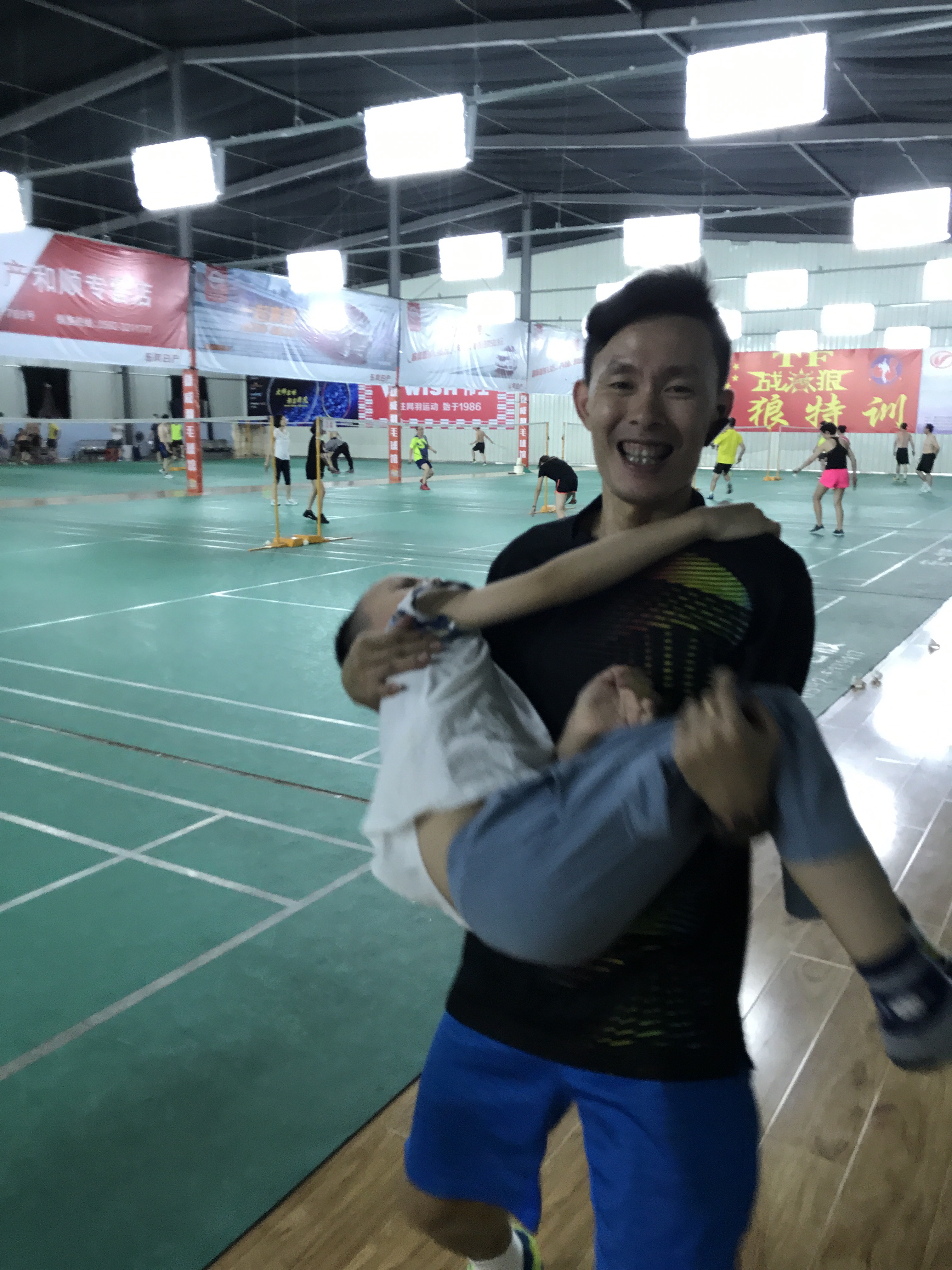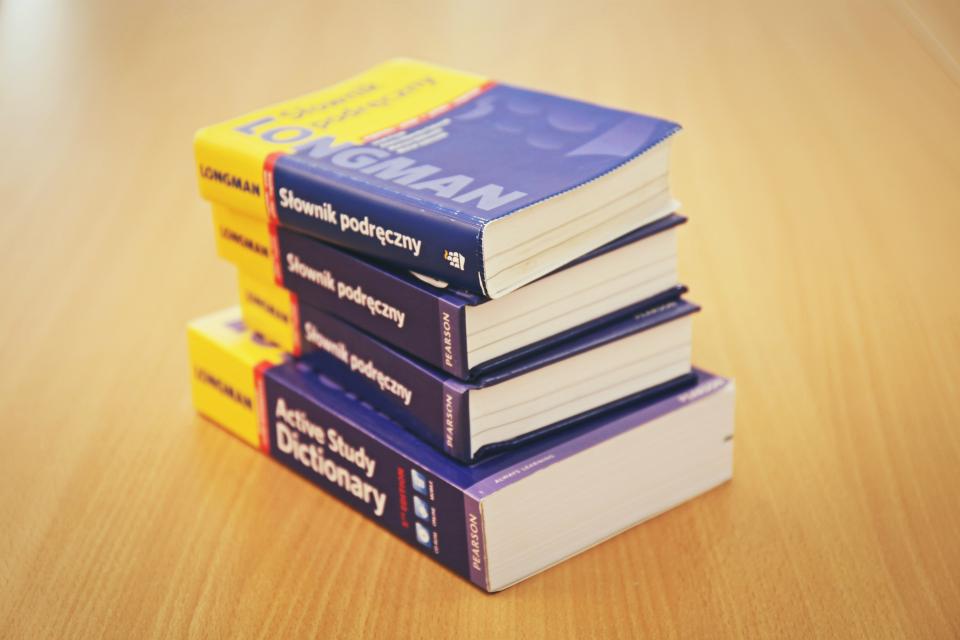As a writer, and an American, I tend to…let’s say…exaggerate a bit. I’m never hungry, it’s never hot, it wasn’t a bad movie. Its more like I’m so hungry my body is *literally*eating itself, it’s the heat from a thousand suns all shining on me and a terminator should go back in time and kill the director when he was a child the movie was that bad. I feel Americans tend to be more dramatic than people from other nations, and our use of the language reflects that. I also make weird jokes and quote random movies in conversation.
Unfortunately this doesn’t translate into Chinese very well. Like on my birthday when I blew out my candles at badminton and said in Chinese, “Yay! I’m not dead!” everyone looked at me weird assuming I had made a mistake in my Chinese and they were trying to work out what I meant to say. “I’m not dead,” I said again. “I lived another year. Yay me.” They finally got what I was saying and laughed and smiled and we continued.
I have these kinds of situations all the time. Like recently on my clubs chat group my coach was saying each person had to pay a monthly fee of 300rmb ($50) for court and birdie usage. (Pretty cheap, eh?)
“Students are 150,” he said. Then added, “women 200.”
Well, this rankled me and I immediately got all pissy about it.
“What do you mean women are less money? Do we play less? Are we less important? Do we not care the same as a guy? Are our hearts weaker?!” I banged out on my phone. If the women are paying a lot less than men, then men will have almost an excuse to exclude us because they’ll think if they pay more naturally they should play more. Grrr.
My coach, very familiar with Becky’s yapping of equality said I was right.
“If you want to pay 300, then you can,” he said sending the laughing emoji.
“ALL women pay 300,” I said. “Why are we different? Why should we pay less?” I asked genuinely interested in the answer. There was one answer I was willing to accept: women play less than men and he was going to make it cheaper in hopes of attracting more women and encouraging them to play more.
But no one said that. Instead someone said, “women are weaker. They don’t break the shuttles as much as men, so they will use less therefore it is cheaper.”
I got all bent out of shape about that because there are so few women we never play together. We always play with men, so the shuttle usage is the same.
What I actually said was something along the lines of “We always play with men, so women eat the same birdies as men.”
Of course a few people in the group started laughing and saying how I needed to study Chinese.
“No,” I said. “I said what I meant to say. Women EAT the same birdies as men,” repeating myself. “I’m a writer! Don’t you know writers like to say things differently?”
“Yeah, but that’s not standard Chinese,” one guy insisted.
“I know,” I said. “It would be weird in English too, but it’s different. It’s more interesting. I don’t like to say things normally.”
He said that foreigners should learn standard Mandarin but my coach backed me up.
“Xiao Bing is right. ‘Eating birdies’ is more imaginative. Genuine Chinese people could say it like this. People understand it,” he said.
And a few people agreed with him saying they liked it, so the detractor sent the “laughing with tears” emoji and was like “okay. I’m wrong.”
“Xiao Bing likes to stay things weird cause she is weird,” one person chimed in. Damn skippy I am.

But sometimes I have legit communication problems. This week my coach was teaching me game theory and he kept saying “bei dong.”
That’s a word I heard a lot but didn’t know what it meant. I only heard it and never saw it written so I didn’t know the characters. Chinese has a lot of homonyms and I tried deducing it myself. I guessed it had something to do with “moving your back” but the context never matched up with my guess. I asked one younger guy what it meant in one game when he said it and he couldn’t explain it to me.
“Does it have something to do with the back of the court?” I asked. He nodded and that’s just what I assumed.
So when my coach kept saying it in our training, and I was in the front of the court, I figured I was totally wrong in my guessing and needed to actually know what this word was. I asked him to explain it to me. This is pretty common as I never studied badminton or badminton vocabulary so he is responsible for teaching me the meaning of all the words I need to know. He’s quite good at it by now.
He tried, but I wasn’t getting it. If it’s a move, he can just kinda do it, and I get it. But this wasn’t something he could act out. I was pointing to my back and saying “my back?” and he was telling me no. I was pointing up and saying “north?” (another common word pronounced bei), also wrong. He was explaining it in sentences but I wasn’t getting it. Finally I could take it no more and I ran off to the side to grab my phone and look it up. It meant “passive.” (被动 not 背动 as I had guessed)
Different than offense and defense, he was saying my returning shots were too passive. We were hitting front of the net drives back and forth, and he has such power and meets the birdie so quickly all I could really do was get my racket up and return it without much strength, giving him every attacking opportunity.
“Too passive!” he said. “Change the passive to the active!” Finally, I got it and I have a new word in the arsenal.
I often wonder if I would be better if I learned in my native language because these things would be a momentarily blip in training instead of a 3 minute distraction. Would I improve faster? Would I be better than I am? But I don’t want to go back to America so I’ll never know…
I did learn another very useful word this week. It came about in a game when one friend jumped to smash the birdie but with all his strength and speed drove it into the ground in front of him.
“Are you planting yams?” his opponent mocked. (你种地瓜吗?) Best. Insult. Ever.

One more Becky and her coach story because who needs dignity? Certainly not me.
Okay, one more embarrassing story cause I know people enjoy my pain. When my coach was driving me home the other day he was telling me that he had to go to his hometown that night and wouldn’t be back until tomorrow.
“Why are you going back?” I asked him.
“My mom,” he said. Then he said something and “bye-bye.”
“Your mom is going bye-bye?” I asked all concerned. He nodded and I looked at his face for confirmation. His mom lives with him and I see her regularly. She’s very nice and was he telling me she just died?! Or was sick? At the moment I looked at him, he put his sunglasses on, and his face was impassive. Was he trying to keep from crying in front of me?
“What does that mean……” I said quietly. “You mom is going bye-bye? Your….mom……died?”
He spun around to look at me.
“Nooo! Xiao Bing!” He said shocked. I started laughing relieved.
“You said your mom is going bye-bye!”
“It’s a Chinese culture thing,” he said. “bye-bye to mother’s mother’s mother. You Americans don’t do this.” (He was talking about the Ghost Festival in which the living give homage to their dead ancestors so they don’t come back angry ghosts.)
Later when I was telling this story (in Chinese) to a friend he started laughing.
“Bai bai!” he said. “Not bye-bye.” He saw me clearly not getting it so he put his hands together like he was praying.
Bai bai 拜拜 means to pray. It just sounds like bye-bye. My coach had been telling me his mom was going to pray and I thought she had died. Forget badminton training, I sometimes wonder how I have any Chinese friends at all…








Haha love this, especially bye-bye! We have words in punjabi that sound similar but mean different things, so whenever my brother announces he has finished work, he actually says he’s dead. My mum used to get so freaked out!
Haha, Although she must be a little relieved to hear the words coming out from his own mouth. 😉
Oh my gosh this is so funny! My favorite part was the last part, where I couldn’t figure out as well why he was saying “bye bye” to his mom! Haha
I have this friend who once told me that in order to understand me, she has to translate my Chinese into English and then back into the right Chinese translation. Not just that, every time she hung with me and then hung out with another friend, the second friend would ask, “why are your adjectives limited to “hao” and “buhao”? Why are you speaking basic Chinese with me?
Btw, I also don’t like how men and women are charged differently, but I’m happy that at least I’m the one who gets to pay cheaper, lol. (Btw didn’t any of your female Chinese badminton friends react when you said that both men and women have to pay the same amount? Haha)
Great story, I learned some new words too!
I felt like you were in the position when a non-native speaker interacts with a native who uses expressions in daily conversations. This is what some Chinese told me, that they can’t keep up with English speakers who are accustomed to using idioms and any other complexities in the language. And then when us, English speakers, experience the same thing in China, we get the same frustration lol (especially for 拜拜 lol)